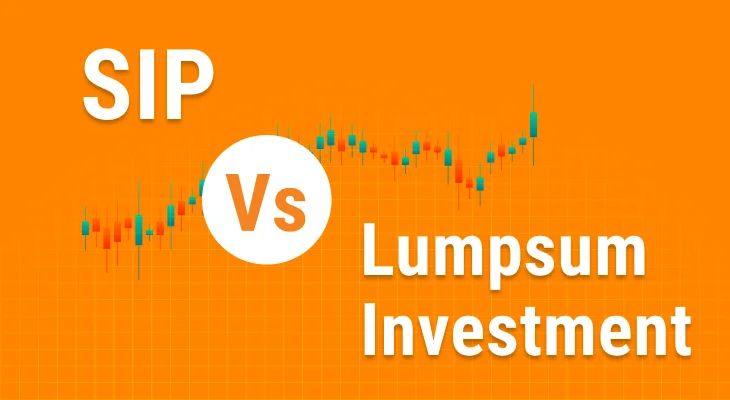Investing can be a rewarding experience, but choosing the right avenue and mode of investment is important to have a potentially comfortable journey.
Among the various investment avenues available, hybrid mutual funds can be a suitable option for investors seeking a balanced approach to potential wealth creation. Such funds invest in both debt and equity, seeking to optimise return potential while mitigating risks.
However, investors may wonder what the better investment route for such funds is: a Systematic Investment Plan (SIP) or lumpsum. This article will explore the pros and cons of both methods and help you choose the right path for your investment goals.
What are hybrid funds?
Hybrid funds invest in a mix of equity and debt instruments. The equity portion seeks capital appreciation potential over the long term, while the debt component seeks to reduce the overall impact of volatility on the invested capital while also offering modest return potential. There are several types of hybrid mutual funds in India. The equity-to-debt ratio varies based on the scheme category. Some types of hybrid mutual funds are more equity-oriented, some may lean towards debt, and others have a dynamically managed portfolio that can flexibly allocate resources across debt and equity.
What is a Systematic Investment Plan (SIP)?
An SIP allows investors to invest a fixed amount regularly in a mutual fund scheme. Investors can choose the amount and frequency that suits them – daily, weekly, monthly, quarterly, etc. This method promotes disciplined investing and leverages rupee cost averaging, where investors buy more units when prices are low and fewer units when prices are high. Thus, money is invested across market cycles and the risk of investing at market peaks is mitigated. SIPs are particularly beneficial for salaried individuals who may prefer to invest smaller amounts periodically rather than a large sum at once.
What is a lumpsum investment?
A lumpsum investment involves investing a large amount of money in one go. This method is suitable for investors who have a substantial amount to invest and prefer to do it all at once. Lumpsum investments can be advantageous in rising markets because the entire invested capital gets exposure to growth potential from the beginning. However, this also increases the investment’s vulnerability to market volatility, which can have a significant negative impact on the investment if the market declines soon after the investment.
Advantages of SIP
- Rupee cost averaging: SIPs allow investors to take advantage of market fluctuations. By investing regularly, investors buy more units when prices are low and fewer units when prices are high, which can lower the per-unit investment cost over time.
- Disciplined investing: SIPs encourage a disciplined approach to investing, making it easier for individuals to build a habit of setting aside money regularly.
- Reduced risk: Since SIPs spread investments over time, they reduce the risk of investing a large amount during market highs.
- Flexibility: SIPs offer flexibility in terms of investment amounts and frequency. Investors can start with small amounts and increase their contributions over time.
Disadvantages of SIP
- Potential for lower returns in a bull market: In a rapidly rising market, SIPs might result in lower returns compared to lumpsum investments as the investment is spread over time.
- Commitment required: SIPs require regular contributions, which might be challenging for individuals with irregular income or cash flow issues.
Advantages of lumpsum investment
- Potential for higher returns in a bull market: Lumpsum investments can yield higher returns if invested during market lows and held through a bullish phase.
- Simplicity: Lumpsum investments are straightforward and do not require regular contributions.
Disadvantages of Lumpsum Investment
- Market timing risk: Lumpsum investments are highly susceptible to market timing. Investing a large amount during a market peak can lead to significant losses if the market declines soon after.
- Psychological impact: Large market fluctuations can have a significant psychological impact on investors, leading to panic selling or irrational decisions.
Hybrid funds and SIP
Hybrid funds, with their balanced approach to risk and return, can be a suitable option for SIP investments. By investing in hybrid funds through SIP, investors can benefit from rupee cost averaging and mitigate the impact of market volatility. This is especially so for hybrid categories (such as aggressive hybrid funds) that are equity-oriented.
Additionally, the diversified nature of hybrid funds makes them suitable for long-term goals such as retirement planning, children’s education, or buying a home.
Hybrid funds and lumpsum investment
Lumpsum investments in hybrid funds can be advantageous during market corrections or when the market is expected to perform well over the long term. For investors with a substantial amount of money to invest, lumpsum investments in hybrid funds can be relatively less risky than those in pure equity funds. However, investors must be cautious about market timing and should consider their risk tolerance and investment horizon before opting for a lumpsum investment in hybrid funds.
Factors to consider when choosing between SIP and lumpsum investments
Investors should keep the following things in mind when determining whether to invest in lumpsum or SIP:
Investment horizon: Your investment horizon can be an important consideration when choosing between SIP or lumpsum. If you have a long investment horizon, SIPs can be beneficial due to rupee cost averaging and the disciplined approach. For a shorter horizon, lumpsum investments might be more suitable, but only if you can time the market correctly.
Risk tolerance: SIPs reduce market timing risk and offer a gradual entry into the market. On the other hand, lumpsum investments carry higher risk due to market volatility but can offer higher returns if timed correctly. Assess your risk tolerance before deciding on the investment method.
Market conditions: In a volatile market, SIPs are preferable as they spread investments over time. On the other hand, lumpsum investments can optimise returns if you invest when markets are about to trend upward.
Financial situation: Your cash flow may also guide your choice. If you have a steady income stream and can invest regularly, SIPs may be a practical option. If you have a lumpsum amount from a bonus, inheritance, or sale of an asset, a lumpsum investment may be more appropriate.
Mutual Fund investments are subject to market risks, read all scheme-related documents carefully.






